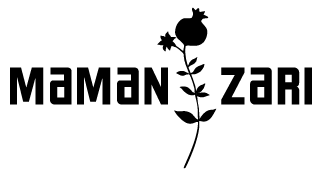Shab-e Yalda
About Yalda and the Persian Solar Calendar
Despite being absorbed into the Islamic world, Iran maintained its unique cultural identity through its language and calendar.
Persian poetry started in the early 10th century and reached its apex with the Epic of the Persian Kings, Shahnameh.
The tenacity of the Iranians to keep their culture is apparent in keeping their ancient solar calendar. Iran is the only Muslim country in the world whose main calendar is not the Arabic Lunar calendar but the ancient Persian Solar one.
Keeping its ancestral calendar allowed Iran to remain in contact with its pagan (pre-Islamic, Zoroastrian, and Mithraic) holidays. The most important of those relate to the four main events of the solar year: Vernal and Autumal Equinoxes (Nowruz and Mehregan) and the Winter and Summer solstices (Yalda and Tirgan).
Yalda is the only one of the four major Iranian holidays that has an Aramaic name, possibly because it was widely celebrated in Mesopotamia.
Winter Solstice was celebrated in Iran as the birthday of Mithra, who was the copanion and close associate to the disc of the sun, Mehr. The winter solstice is considered the birthday of the Sun as from this night forward, every day becomes longer. There is a story of a friendly wrestling match that occurred between the two friends. Mithra won and helped the sun (Mehr) get up with a handshake.
Ancient Zoroastrians in Iran used red to represent the color of dawn and light in general. It’s likely for that reason that many of the foods served on Yalda are red.
Traditional Yalda Activities
Gathering with friends and family on this night is common. The idea is to spend some of the night with friends to reduce its length. The gatherings begin with a fine dinner, usually highlighting popular regional dishes.
Iranians everywhere serve a variety of fruits, including pomegranate—the crown jewel of fruits native to Iran—watermelon, and persimmon. Other common foods are steamed beets and mixed dried fruit and nuts, including figs, white mulberries, raisins, dates, hazelnuts, and pistachios, and special sweets.
At the end of the night, people open a book of Hafez randomly. A designated reader, usually an elder, interprets the first poem that each person opens to as that person’s fortune for the year to come. Reciting poems and Hafez’s bibliomancy, that is, posing a question and opening the divan of Hafez to a random page to read his response, is a favorite activity of the night.
Join us at Maman Zari on Thursday, December 21, 2023 to celebrate Shab-e Yalda!
You can book your reservation on Tock.

